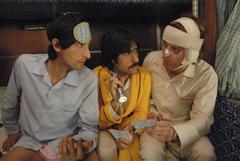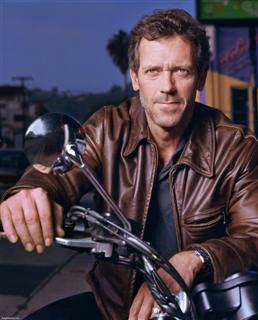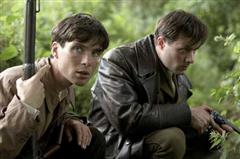 Never one to shy away from films dealing with the complexity of family life, Wes Anderson explores the oddity of sibling relationships in his latest film “The Darjeeling Limited.” The movie follows three brothers Francis (Owen Wilson), Jack (Jason Schwartzman) and Peter (Adrien Brody), as they take a train across India to connect with their spiritual selves, help their natural selves get along after the death of their father and find their estranged mother (Anjelica Huston) who lives in a convent in the mountains of the Himalayas. Brody, the newest player in Anderson’s films, meshed perfectly with Wilson and Schwartzman, adding a bit more quirkiness to the scene—if that is even possible.
Never one to shy away from films dealing with the complexity of family life, Wes Anderson explores the oddity of sibling relationships in his latest film “The Darjeeling Limited.” The movie follows three brothers Francis (Owen Wilson), Jack (Jason Schwartzman) and Peter (Adrien Brody), as they take a train across India to connect with their spiritual selves, help their natural selves get along after the death of their father and find their estranged mother (Anjelica Huston) who lives in a convent in the mountains of the Himalayas. Brody, the newest player in Anderson’s films, meshed perfectly with Wilson and Schwartzman, adding a bit more quirkiness to the scene—if that is even possible.
Anderson took delicate care to show the beauty of the landscape and the people of India, but it didn’t take long for the brothers to monopolize the moments of breathtaking beauty and belittle it as nothing more than a hindrance to their own completely wretched lives. As the films rolls along, their antics are just as off-color as the train—the namesake of the movie—they were traveling on. The brothers spend the greater portion of their spiritual journey overdosing on over-the-counter Indian medicine, smoking, arguing, and praying to the wrong deities—can you cross yourself in a Hindu Temple?
Clearly, the journey was meant to be thrown off course by these random incidents—much like our spiritual walks are thrown off course by the smallest distractions—but I was afraid that they might never get back on track, and then it happened.
Anderson’s stroke of genius—in the nick of time—came through when the brothers were kicked off of the train for losing a poisonous snake, among other things. Without going into great detail, because I don’t want to spoil it for those of you who plan to see the film, I will say that Anderson managed to accurately depict what happens when you stop trying to be spiritual and just walk in it. The brothers experience enlightenment in a way that they hadn’t imagined they would by what I consider the “God works in mysterious ways on ordinary days” clause. I was amazed at that moment and I wondered if anyone else caught the profundity of it all.
Deep things aside, it turns out that I didn’t have to be a huge Anderson buff to watch the movie and understand what was going on—which some would disclaim as a reason not to see it. But I do recommend that if you aren’t familiar with Anderson’s M.O. in film-making that you read up on him so that you can understand—if for no other reason than to figure out why our beloved Owen Wilson has appeared in many of his films. But if you never see the movie, remember this little gem of wisdom that I gained from it: The spiritual journey starts when you stop trying to have one. Thanks, Wes.


